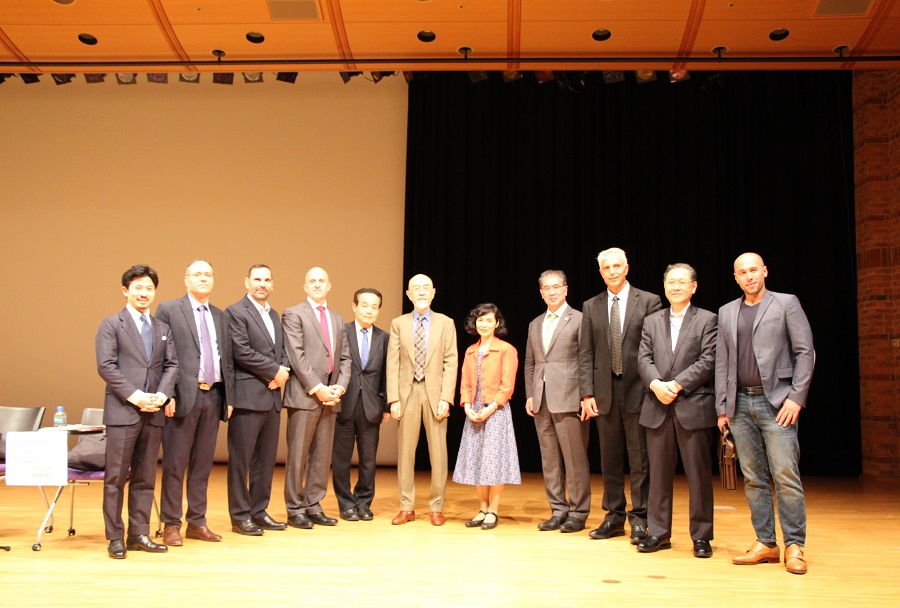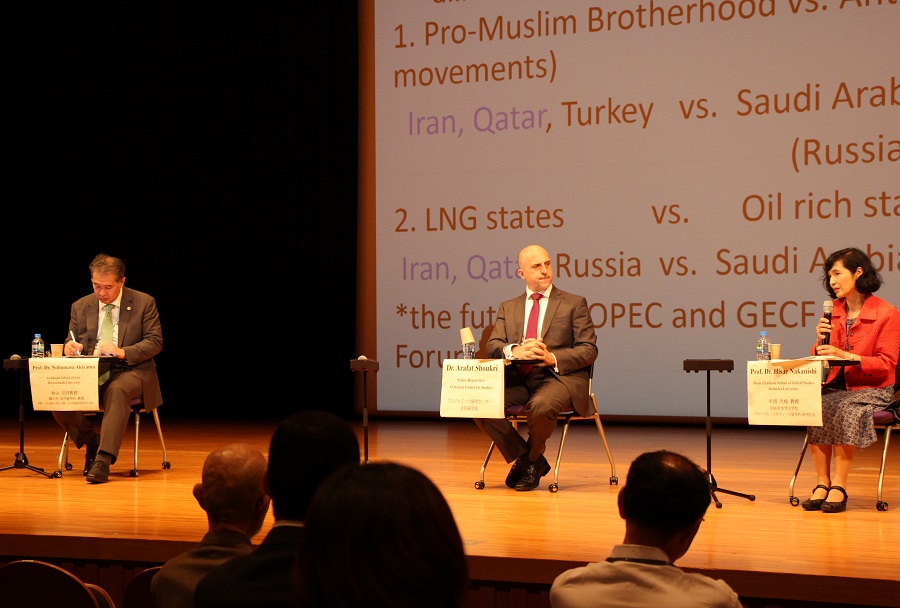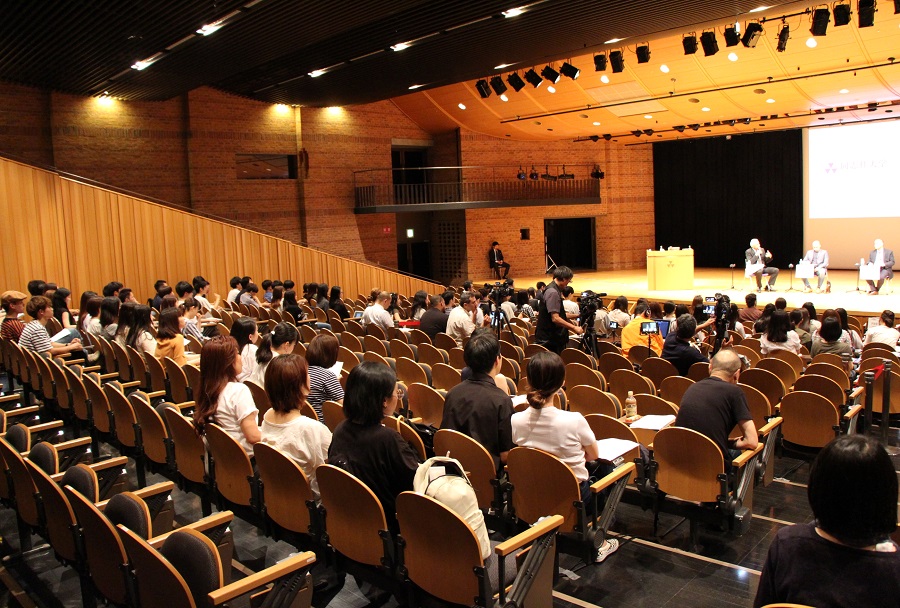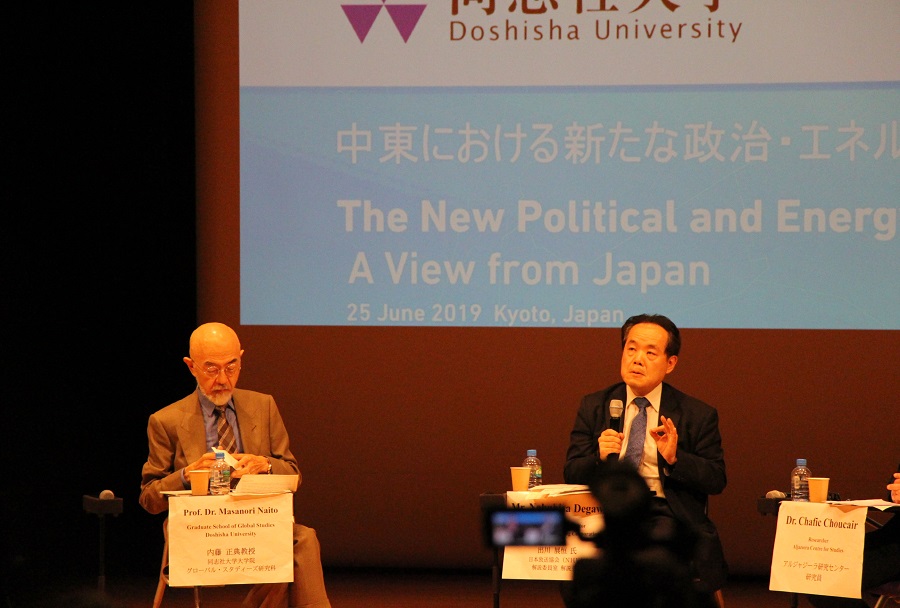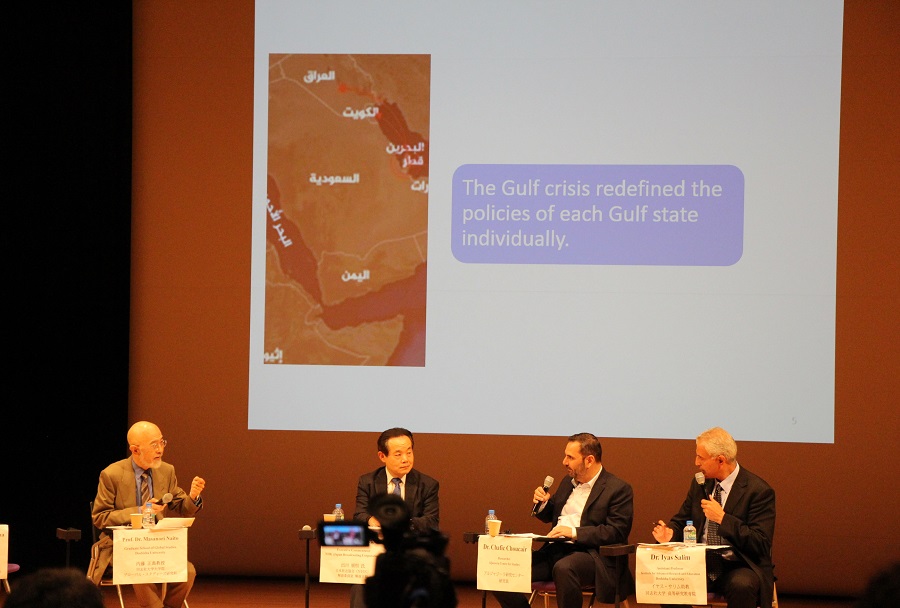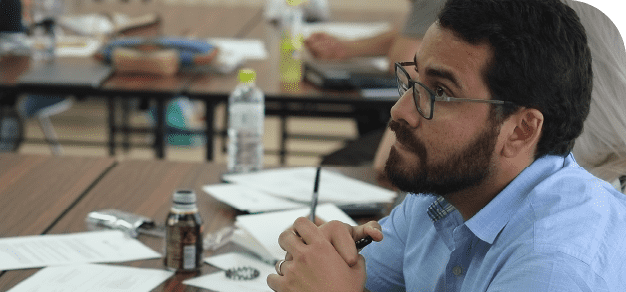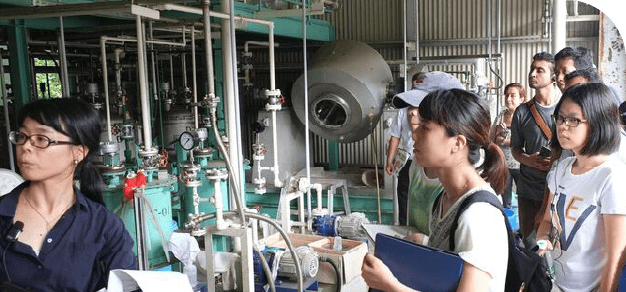Recent Activities
GRM International Conference "The New Political and Energy Shifts in the Middle East : A View from Japan"
2019/06/25
This joint international conference was organized by GRM program of Doshisha University in collaboration with Al Jazeera Centre for Studies, AJCS, on Tuesday 25 June 2019 at Doshisha University in the city of Kyoto.
----------------------------
Date: Tuesday, 25 June 2019
Time: 10:00 A.M. - 17:00 P.M
Venue: Hardy Hall (B1F), Kambaikan, Imadegawa Campus
----------------------------
The aim of conference was to examine the emerging strategic complexities of new political and energy shifts in the Middle East.
GRM program invited researchers and scholars from Al Jazeera Centre for Studies as well as scholars and professors from within Doshisha University, Middle East Research Institute, Hitotsubashi University, NHK Senior media commentator and universities in Kansai area.
The conference consisted of four panels, each panel lasted for 90 minutes.
Panel 1 focused on the current standoff between the U.S and Iran and how it is relevant to the so called “Deal of the Century.” It is an interesting coincidence while the Doshisha-AJCS Conference is being held, The White House is introducing its plan for “peace” in the Middle East in Bahrain on the same day. The Palestinians leadership boycotted the conference in Bahrain. All major Palestinian political parties and movements have expressed their disappointment at the so called Deal of Century as the proposal addresses only the economic aspect but not the political dimension, namely self-determination of the Palestinian people. A Proposal for economic package does not fulfill the political aspirations of the Palestinian people who are longing towards ending Israeli military occupation, a statehood, freedom and dignity. Media reports revealed a 50- billion Dollar economic package as the main pillar of the Deal of the Century but Palestinian leaders responded in voicing out a deep dismay against the proposal for not addressing the real and urgent issue which is the political. “Palestine is not for sale,” was the sentiment echoed in protests by Palestinians inside Palestine and refugees in the diaspora.
Panelists discussed the Iran nuclear deal and how the agreement is at risk. The tensions in the Gulf threatens the stability of the region as well as the energy passage of oil experts. Japan relies heavily on imports of oil from the Middle East. 90% of Japan’s imports of oil comes from the Middle East, making Japan highly vulnerable in terms of its needs for energy supplies. As Panelists were discussing the issue, news stories were still making headlines as President Trump tweeted announcing new sanctions on the Iran’s Supreme leader Ali Khamenei. Till this moment, the language of escalation appears to dominate the scene between the U.S. and Iran. Japan is hosting the G20 Summit in the city of Osaka on 28 and 29 of June. The summit agenda is a busy one for certain, However, the world eyes are going to watch how G20 leaders in Osaka summit are going to handle the crisis in the Gulf?
Panel 2 moved on to discuss how the volatile energy sector is impacting China and Japan. China is the second largest economy in the world and it is hungry for energy and raw material resources. The Panel discussed China’s role in Africa and how China’s economic prowess is becoming a major factor in shaping globalization, particularly in Africa. Is China a force of good in Africa? Or it is an emerging economic empire which is bound to bring Africa under a new form of imperial domination?
Panel 3 explored the new emerging popular protests in Algeria, Sudan in particular and the situation in Libya. The new protests have been dubbed the second phase of Arab Spring or Arab Uprising. Protesters in Sudan have no illusions concerning the demands on establishing a civilian government in Sudan. The standoff is between the military in Sudan and the Freedom and Change Alliance. The alliance represents various civil society entities, associations and different unions within Sudan. Aware of the military record of despotism in neighboring counties, the Sudanese protesters appear adamant on taking Sudan towards a transition for a civilian rule and democracy. Regional and foreign intervention appear to be a major worry and concern for the protesters in Sudan. In Algeria, the people of Algeria have been taking to the streets every Friday, demanding the dismantling of the power network of former president Boutfeflika and transforming Algeria into a democracy with a healthy, strong civil society.
Panel 4 discussed the changing dynamics in the Middle East and how are they viewed by Japan and Qatar. As voiced by NHK Panelist, Japan’s position on the Palestinian question is the policy of two-state solution. However, Japanese public diplomacy is not felt enough and ineffective as far as the Palestinian issue is concerned. For U.S.-Iran Standoff, Japan would like to see a diplomatic solution. For a number of observers in Japan, the latest visit by Prime Minister Abe to Iran has been described as a failure. However, according to NHK Panelist, Prime Minister Abe’s visit is the beginning towards finding a diplomatic way out. As for the continuing popular protests in the Arab World, known as the Arab Spring, the Panelist from AJCS pointed out Qatar’s position was and still to accept the people’s choices towards democratic governance and aspirations.
